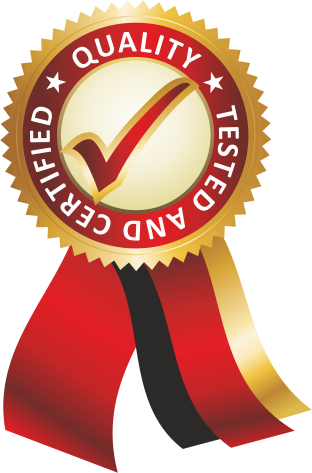Our Quality Policy
 A three-staged quality standard has been established to enable our students to progress to the desired competence in every field. In the first stage, a “Professional Knowledge and Equipment” will be provided through measurable and testable methods that will help them to enter directly into production and employment during the education and training periods. The second stage is to provide our students with the ability of “Academic Experience and Dominance” to identify and solve problems and to pass on a method knowledge that will enable them to open their own ways of self-development through their own efforts by testing each other and making self-criticism when necessary. The ultimate goal of these two stages is the stage of “Intellectual Qualification”, which has reached the level of maturity and satisfaction required within the framework of conscientious responsibility as well as science.
A three-staged quality standard has been established to enable our students to progress to the desired competence in every field. In the first stage, a “Professional Knowledge and Equipment” will be provided through measurable and testable methods that will help them to enter directly into production and employment during the education and training periods. The second stage is to provide our students with the ability of “Academic Experience and Dominance” to identify and solve problems and to pass on a method knowledge that will enable them to open their own ways of self-development through their own efforts by testing each other and making self-criticism when necessary. The ultimate goal of these two stages is the stage of “Intellectual Qualification”, which has reached the level of maturity and satisfaction required within the framework of conscientious responsibility as well as science.
Our most important quality goal is to present all cultural, scientific and artistic knowledge required by this level to our students at every stage of their education, for them to be raised as an individual who is always confident and ready to grow by acquiring a sense of learning, experience, courtesy, common sense and human responsibility, to reach the point where they can perform their duties easily within the determined standards. At this point, making the slogan for the main elements of the business and professional ethics developed in Japan “First the benefit of my country, then the benefit of my institution, finally the individual benefit!” a voluntarily adopted, indespensible attitude for each and every one of our students, academicians and other staff becomes the basis of our quality policy.
In line with our vision and mission, a number of values of our university emerge. These values create quality and make it sustainable. In this context, our university made it its quality policy to regularly evaluate the main objectives, targets and performance measurements, to consistently develop, taking into account both local and international quality standards, to always have an understanding that desires to meet the requirements and expectations of the stakeholders both internal and external in the current process, to adopt a culture of improvement and to adopt the culture of suggestions and feedback.